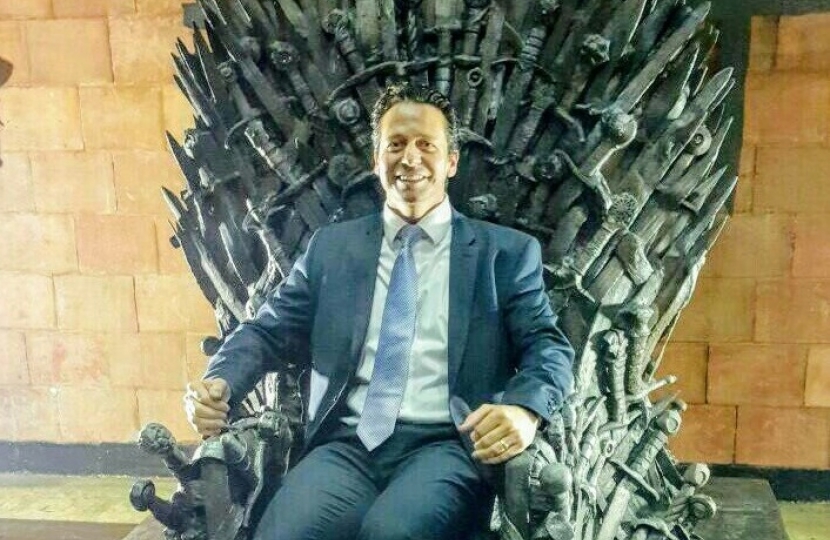
This week, I travelled to Belfast with the Culture, Media and Sport Select Committee as part of a series of hearings to explore the impact of Brexit on the creative industries and tourism sectors. The committee heard first-hand about the concerns and opportunities arising from Brexit in Northern Ireland.
I began the trip on Monday with a visit to the BBCs Belfast headquarters, then visited a great Belfast success story, the Titanic Quarter. I toured the Titanic Studios, including the Game of Thrones set, and visited the award-winning Titanic Belfast museum. On Monday evening the committee held a reception at the Hillsborough Castle, the Queen’s official residence in Northern Ireland. On Tuesday, I participated in the committee’s third evidence session of its inquiry into the Impact of Brexit, met with staff at Queen’s University and then visited the Metropolitan Arts Centre.
During the committee’s evidence session at Queen’s University, Belfast , representatives of organisations including Belfast City Council, Screen NI, Tourism NI, and the Northern Ireland Hotels Federation gathered to testify about the impact of Brexit on tourism and the creative industries in Northern Ireland.
I quizzed the witnesses on the importance of film production facilities such as the Game of Thrones set to Northern Ireland’s economy, whether they thought the legacy would continue after filming had ended and the prospects for further expansion to other large-scale productions. Witnesses were confident that Northern Ireland had sufficiently built up its TV production reputation and talent pool to the extent that its creative industry would thrive post-Brexit and post-Game of Thrones and crucially, that it would be able to do so in the absence of EU or government subsidies.
This confidence was less apparent amongst witnesses from the tourism industry, who testified about the impact of the uncertainty surrounding the final Brexit deal on their sector. With an overwhelming majority of visitors to Northern Ireland passing through the Republic of Ireland first, borders are a hugely significant issue for the tourism industry and witnesses stressed their preference for a ‘soft’ rather than ‘hard’ border between Northern Ireland and Ireland after Brexit. Northern Ireland’s tourism industry is considerably reliant on EU workers and there was a worry about the impact that additional visa restrictions could have on its labour force. Witnesses also spoke of the momentum in the cruise industry – the number of cruise ships visiting Belfast has more than quadrupled to nearly 100 in recent years. The committee also heard evidence about the impact of differential VAT and Air Passenger Duty (APD) rates between Northern Ireland and Ireland on the tourism sector.
It was great to visit Belfast and see the fascinating attractions on offer for visitors. Northern Ireland’s tourism industry has seen remarkable growth in recent years and this is due in no small part to the tremendous success of Game of Thrones which is filmed there and the development of world class tourist attractions like Titanic Belfast. Whilst concerns were raised about Brexit and particularly the uncertainty on the issue of the border, it was reassuring to hear the confidence of representatives from the creative industries.
